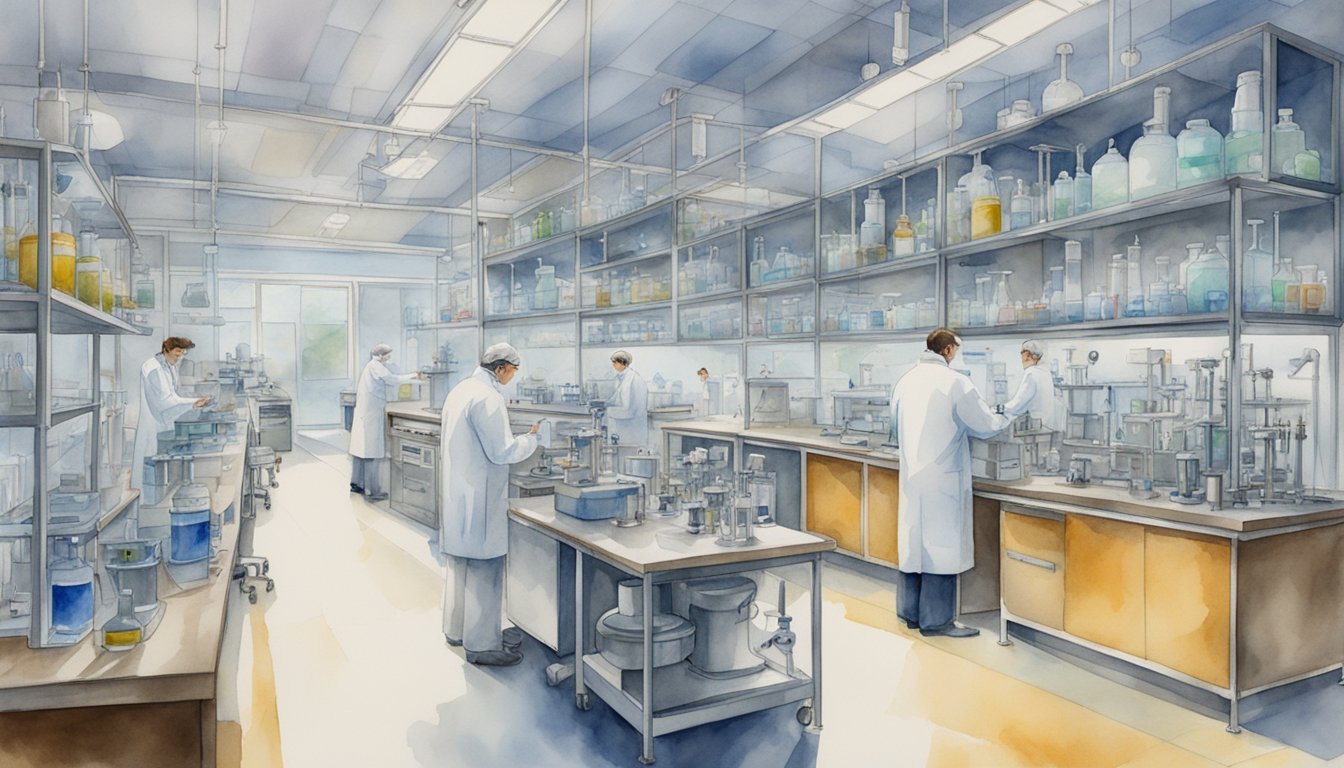Advancements in Medical Technology

Recent breakthroughs in medical technology are shaping the future of healthcare, enhancing patient care, and expanding the frontiers of biomedical research.
Innovations in Medical Devices
Medical device development has seen the introduction of electromagnetic mechanisms that could propel mechanobiology from the research stage into clinical practice. These devices provide new ways to understand and utilize the mechanical properties of cells and tissues.
Machine Learning and AI in Medtech
Artificial intelligence and machine learning are rapidly becoming integral to medtech. Algorithms are employed not only in the analysis of complex medical data but also in the development of new strategies for disease detection and diagnosis, improving accuracy and outcomes.
Emerging Telehealth Technologies
Telehealth platforms have not only made healthcare more accessible but have also significantly improved efficiency. Advances in telehealth have led to a notable reduction in the average duration of medical consultations, thereby augmenting patient throughput.
Genetics and Precision Medicine
Gene-editing techniques, such as the first CRISPR gene-editing therapy, have marked a significant milestone. This area of medical technology addresses diseases at the genetic level, enabling treatments tailored to individual DNA profiles.
Robotics and Soft Robotics in Healthcare
The integration of robotics in healthcare, especially soft robotics, is changing medical procedures. With the increased precision and control of robotics, surgeries are becoming minimally invasive, with smaller incisions and quicker recovery times. Soft robotics mimic natural muscle motion, allowing for more complex and delicate surgeries.
Medical Technologist Insights and Developments
In the rapidly evolving world of healthcare, medical technologists continue to see significant advancements and changes. Developments range from increased growth due to the pandemic to technological innovations enhancing patient care.
Impact of COVID-19 on Medtech
COVID-19 has catalyzed a transformation in the medtech industry, accelerating growth and innovation out of sheer necessity. With the pandemic highlighting the importance of rapid testing and reliable patient data, the spotlight turned to technologies that can both diagnose and contribute to the understanding of health conditions. This period saw an unprecedented demand for medical technology, from ventilators to personal protective equipment (PPE), disrupting supply chains and spurring change that continues to influence the sector.
Healthcare Industry Trends
Among the most prominent healthcare industry trends is the rise of digital healthcare and robotics. Medtech companies have turned their focus to developing e-health solutions, such as telemedicine services, to meet the growing need for remote care. With cardiovascular health being a prime concern, innovations in this segment underscore the industry’s commitment to improving the quality of life for patients.
Major Mergers and Acquisitions
The landscape of healthcare has experienced a flurry of major mergers and acquisitions (M&A) among Medtech firms. These strategic moves, often aimed at expanding capabilities and entering new markets, reflect the sector’s response to the dynamic nature of healthcare demands. Large-scale M&A activities are reshaping the industry, creating global leaders with the resources to push the boundaries of medical technology.
Improvements in Patient Care
Fundamental to the mission of medtech is the enhancement of patient care. Innovations have led to more precise diagnostics, smart devices that can monitor patient health in real time, and minimally invasive options for treatment. These advancements not only improve the medical outcomes for people with various health conditions but also contribute to a more efficient healthcare system. As these technologies become more ingrained in day-to-day medical practices, they pave the way for a future where healthcare is more accessible and personalized.
Each of these elements plays a critical role in shaping the future of medical technology and healthcare at large, ensuring that patient needs and the strive for innovation remain at the core of industry developments.

